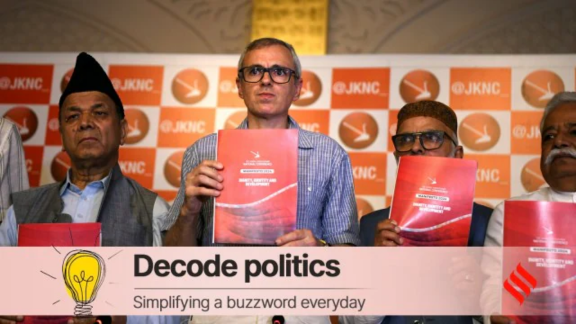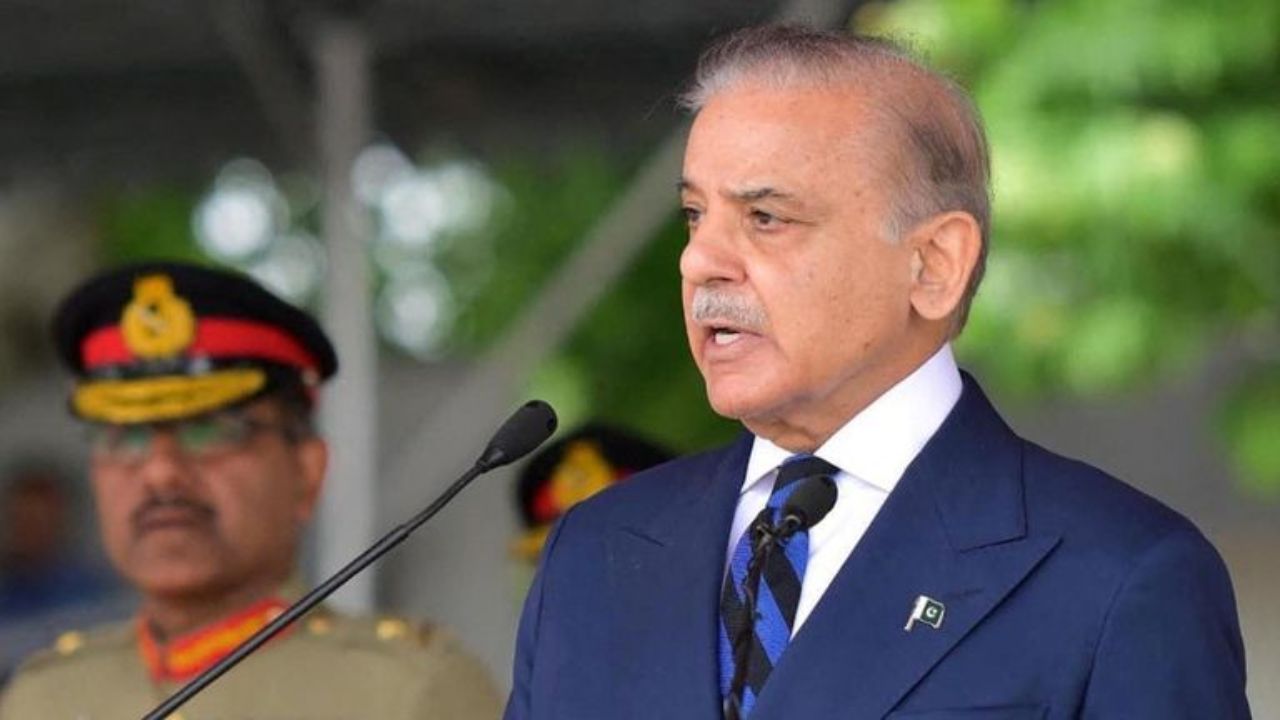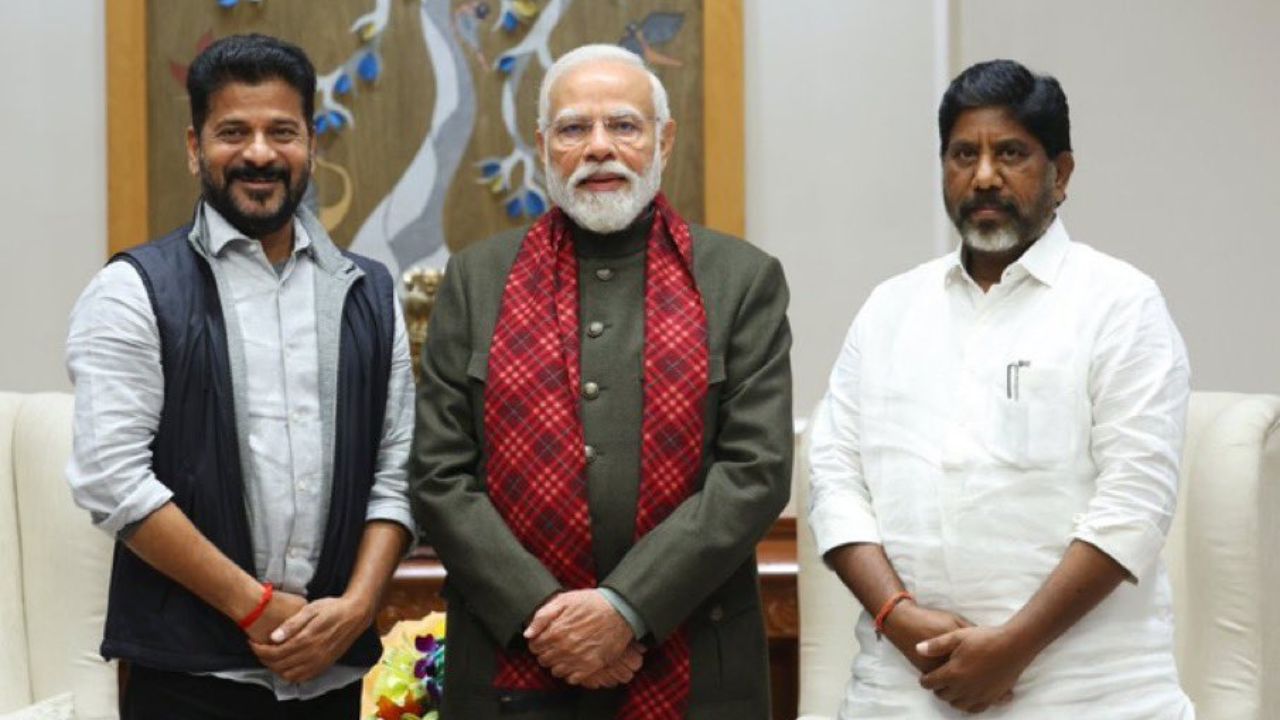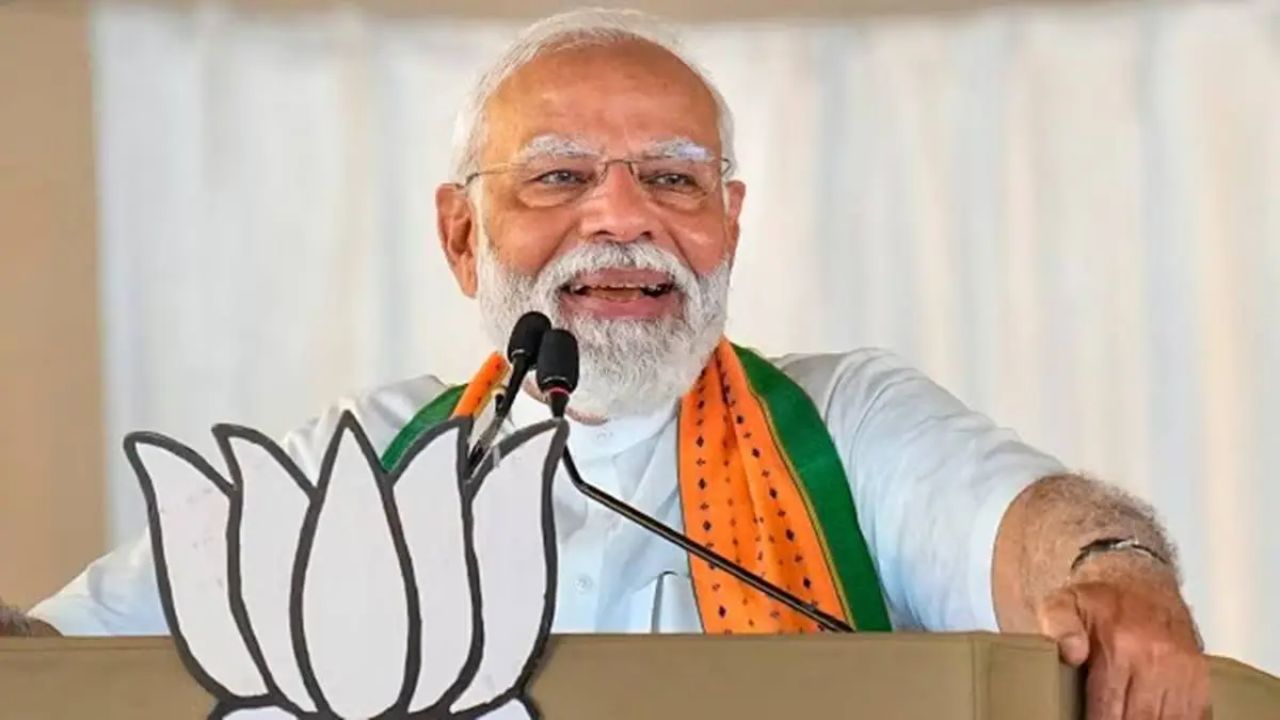Decode Politics: After Article 370’s Repeal, NC Pushes for J&K Autonomy – Why, How, and What’s Next?
Last week, the National Conference (NC) reaffirmed its commitment to restoring autonomy in Jammu and Kashmir through its manifesto, reviving a key issue as the Union Territory heads towards Assembly elections. These elections hold particular

Last week, the National Conference (NC) reaffirmed its commitment to restoring autonomy in Jammu and Kashmir through its manifesto, reviving a key issue as the Union Territory heads towards Assembly elections. These elections hold particular significance as they are the first since the abrogation of Article 370 in August 2019, a constitutional provision that once granted extensive rights to the former state.
“We will make every effort to restore the autonomy of Jammu and Kashmir, as guaranteed in the Constitution of the country to the people. We also pledge to intensify our efforts towards the unification and restoration of statehood, as well as the Constitutional guarantees provided to the people of Jammu and Kashmir,” the NC manifesto stated.
While the demand for autonomy has been a longstanding priority for the NC, the party has also faced criticism for not always upholding it. In 2000, under the leadership of Farooq Abdullah, the NC government passed a resolution in the Assembly seeking to restore autonomy in J&K. However, this effort did not progress further.
What is the historical context behind the autonomy demand?
Unlike other Indian states, Jammu and Kashmir was granted special status under Article 370 after it signed the Instrument of Accession with India in October 1947. This provision allowed the state to have its own Constitution, flag, and significant control over its governance, with only defense, foreign affairs, and communications under the Indian government’s purview.
The state enjoyed these special powers until 1953, when then-Prime Minister Sheikh Abdullah was arrested. Since then, these powers have steadily diminished.
What does autonomy mean for J&K, and when did it resurface in politics?
Autonomy for J&K refers to restoring the pre-1953 status, which includes reviving designations like Wazir-e-Azam (Prime Minister) and Sadr-e-Riyasat (State President) for its top political leaders.
In the 1980s, during the rise of militancy and following a standoff between the state government and New Delhi, Jammu and Kashmir was without an elected government for six years, with the Centre taking control. The situation changed in 1995 when then-Prime Minister P.V. Narasimha Rao hinted at granting “sky’s the limit” autonomy for Kashmir, leading the NC to participate in the 1996 elections on the condition of autonomy restoration.
What are the key points of the autonomy demand?
In the 1996 Assembly elections, the NC secured 57 out of 87 seats. On June 26, 2000, the NC government passed a resolution seeking autonomy in the Assembly. The resolution called for declaring Article 370 as “special” rather than “temporary” and revoking various Articles imposed after 1953. It also proposed reinstating the titles of Wazir-e-Azam and Sadr-e-Riyasat.
After passing the resolution, then-Chief Minister Farooq Abdullah stated, “It was our promise to the people of Jammu and Kashmir during elections that we would reinstate their decorum and respect.”
What happened to the resolution?
On July 4, 2000, the Union Cabinet, led by then-Prime Minister Atal Bihari Vajpayee, rejected the resolution, stating that it sought to reverse constitutional provisions and would harm the country’s integrity and the interests of the state’s people. The Cabinet decided not to introduce the resolution in Parliament.
How do other parties in J&K view autonomy?
The demand for autonomy resonates with many people in Jammu and Kashmir, particularly those who believe secession from India is not feasible. This sentiment makes it challenging for political parties, especially those based in Kashmir, to oppose autonomy.
For instance, the Peoples Democratic Party (PDP) has proposed “self-rule” for the Union Territory, which many interpret as a more advanced form of autonomy. The BJP, on the other hand, remains strongly opposed to any form of autonomy for J&K.




